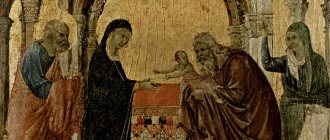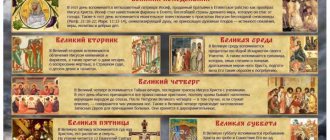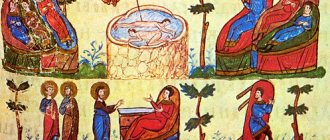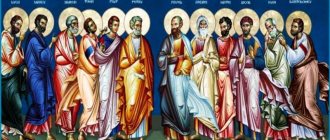The parables of Jesus Christ are edifying stories set out in the Gospel, told by the Messiah to illustrate a particular point.
The parable, in addition to the main meaning that is before our eyes, is trying to tell us about something else. This is a kind of moral teaching and instruction, presented in the form of a story. However, we can say that a person understood this or that parable if he only applied it in life. Any parable of Christ invites you to think and take some specific action.
The purpose of parables
The parables of Jesus Christ have at least four purposes.
- Parables are intended to clarify some spiritual concepts for people who sincerely strive to know the truth. For example, the parable of the unmerciful servant (Matthew 18:21-35) teaches the need to forgive others as God has forgiven us.
- Proverbs sometimes hid the truth from people who might misuse it (see Matt. 13:13-15).
- Sometimes a parable has helped a sinner to admit the truth before he realized how it applied to himself (Matt. 21:33-45).
- The narrative form of the parable made it easier to remember its meaning.
The meaning and confirmation of the phrase: “There is nothing secret that would not become apparent”
Theophylact of Bulgaria explains it this way. You should never notify anyone about a good deed you have done. Done in secret from people, it is revealed to God. An unpublicized good deed is considered dedicated to God, so the Lord will look upon it with His mercy. A good deed that becomes known to people receives reward from them, and therefore is considered to be done not for God, but for people. “There is nothing hidden that will not be revealed,” says Jesus. This is confirmed by the fact that the Lord Himself, the Mystery of Mysteries, became a reality for people, incarnate in the Son.
How to Study Parables
Parables are wonderful teaching tools, but being figurative narratives, they are subject to misinterpretation.
The following rules will help make the study of parables a useful activity that brings good results.
- It is necessary to carefully study the contextual (historical) background of the parable. This will help you figure out its correct meaning. The three parables in the fifteenth chapter of Luke's Gospel - the lost sheep, the lost coin, and the prodigal son - arose from the fact that the Pharisees condemned Christ for His generous attitude towards sinners.
- It is necessary to examine the grammatical and lexical forms of the parable, because they contain important aspects of truth. In the parable of the wicked husbandmen (Mark 12:1-9), the son (Christ) is presented as the Father's “last” offering (v. 6, PC). This is important because there will be no other means of salvation.
- It is necessary to highlight the main truth of the parable, for example, “Who is my neighbor?” (Luke 10:29), and then look at any other valid additional points that can be drawn from the narrative. However, it should be borne in mind that one cannot build a teaching only on the basis of single mentions of any issues in parables.
Themes of parables
Systematization of parables according to the general principle of a title, which to a certain extent reflects their themes, can be useful, although it must be recognized that such a classification is rather arbitrary.
Parables about the kingdom.
In some parables there is a clear emphasis on the kingdom. Sometimes they begin with the words: “The kingdom of heaven is like...”.
Seven of them are contained in the thirteenth chapter of the Gospel of Matthew: “The Sower,” “The Tares,” “The Mustard Seed,” “The Leaven,” “The Hidden Treasure,” “The Pearl of Great Price,” and “The Net.”
Also related to this topic are the parables “The workers in the vineyard” (Matt. ch. 20), “Evil vinedressers” (Matt. ch. 21), “Two sons” (Matt. ch. 21), “The mustard seed” (Mk. ch. 4) and “The Great Supper” (Luke ch. 14).
Parables about sinners.
There are three parables that relate directly to sinners; all three are recorded in the fifteenth chapter of Luke's Gospel: "The Lost Sheep", "The Lost Coin" and "The Prodigal Son".
Parables about forgiveness.
Some parables explore the theme of forgiveness, for example, “Worthless Servants” (Luke Chapter 17), “The Unmerciful Servant” (Matthew Chapter 18) and “Two Debtors” (Luke Chapter 7).
Parables about management.
Service involves recognizing that God is the Supreme Ruler of everything and everything we have. We are merely “stewards” (stewards) of the Lord’s property.
Three parables are devoted to this topic: “Talents”, “Mines” (Luke ch. 19) and “The Rich Madman” (Luke ch. 12).
Parables about prayer.
There are three parables (all in the Gospel of Luke) that give instruction about prayer: “The Friend at Midnight” (Luke 11), “The Unjust Judge” (Luke 18), and “The Pharisee and the Publican” (Luke 18). Chapter 18).
A parable about help.
The parable of the Good Samaritan (Luke ch. 10) stands out somewhat apart because it reveals the question of who is worthy of our friendship and help.
Parables about readiness.
In conclusion, there are four parables that, in different ways, emphasize the idea that each of us will eventually have to answer for our actions, and therefore these parables speak of the need to be prepared for eternity.
These are the parables “The Barren Fig Tree” (Luke Ch. 13), “The Unfaithful Steward” (Luke Ch. 16), “The Marriage of the King’s Son” (Matt. Ch. 22) and “Ten Virgins” (Matt. Ch. 25) .
The Lord calls us to learn to forgive
This parable teaches us to forgive without a second thought, to accept repentance without edifying suggestions, without reasoning and moralizing. The Lord is trying to inspire us so that we are not afraid that a repentant loved one, having received absolution, will again indulge in all kinds of serious crimes. This shouldn't concern us. The ability to forgive is no less important than the ability to ask for forgiveness. It's no secret that the father is also to blame for the fact that a son abandons his family and wastes his father's property to satisfy his own whims. In ordinary human life this happens quite often. Within the family, throughout our entire existence together, we from time to time remind each other of past grievances. This forms hostile relationships from which we want to break out, and from time to time we leave our family and begin to live only in our own personal interests, convincing ourselves that we have suffered enough - we can live for ourselves. The consequence of this is spiritual devastation.
The same situation, only slightly changed, is repeated again and again. Different peoples have even developed proverbs: “There is no black dog, which speaks of the meaninglessness of forgiveness. These proverbs, although they are folk wisdom dating back many hundreds of years, are still imbued with hostility and contempt for man. They feel a partial attitude towards the sinner, an elevation of one’s own personality over the personality of a person who was called a black dog or a wolf. In none of His parables does the Lord appear to despise people.
Pearls in parables
We have already noted that, as a rule, there is one main element of truth in a parable, although there may be several additional valuable lessons. In this section we will try to consider one parable from the above categories.
Attitude.
The parable of the sower (Matthew 13) is intended to show the different attitudes with which people respond to being introduced to the gospel of Christ.
- The land “by the road,” that is, on the side of the road, is a cold heart that shows no interest in the teachings of Jesus.
- Rocky soil with very thin topsoil symbolizes the superficial person who readily accepts the gospel but then quickly abandons it when persecution begins.
- The soil where grains and thorns grow can be called “supersaturated” soil. Its fertility is drowned out by selfish interests that become “more important” than the gospel. The eternal is subordinate to the transitory.
- Finally, the good soil symbolizes an honest and good heart that gratefully receives the gospel and produces fruit according to its ability.
Seven of them are contained in the thirteenth chapter of the Gospel of Matthew: “The Sower,” “The Tares,” “The Mustard Seed,” “The Leaven,” “The Hidden Treasure,” “The Pearl of Great Price,” and “The Net.”
Also related to this topic are the parables “The workers in the vineyard” (Matt. ch. 20), “Evil vinedressers” (Matt. ch. 21), “Two sons” (Matt. ch. 21), “The mustard seed” (Mk. ch. 4) and “The Great Supper” (Luke ch. 14).
Sinners.
Probably the most beloved parable about sinners is the parable of the prodigal son (Luke ch. 15).
The foolish son demanded his share of the inheritance. Having received what was due to him, he went to a distant country, where he spent his time in entertainment. But there is a very high price to pay for sin, and in the end the young man squandered all his funds and turned into a failure.
Ultimately, his failed life brought him back to reality. He swallowed his pride and returned home. His loving father was waiting for him and generously accepted him.
Of course, all this shows the compassion of the Lord Jesus, which is different from the hostile attitude of the Pharisees.
Forgiveness.
“Forgiveness” is one of the most amazing words in Scripture. In response to Peter's limited attitude toward forgiveness (Matthew 18:21), Christ told the parable of the unmerciful servant (verses 23-35).
A certain ruler discovered that one person owed him a huge amount of money that he could never pay on his own. If he received the average salary of a hired worker of that time (Matt. 20:2) and paid it in full to pay off the debt, it would take him 200,000 years to eliminate the debt!
Of course, this symbolizes our debt to God because of our sins.
23 For the wages of sin is death, but the gift of God is eternal life in Christ Jesus our Lord. (Rom.6:23)
Man cannot “earn” his salvation.
8 For by grace you have been saved, through faith; and this not of yourselves, it is the gift of God: 9 not by works, so that no one can boast. (Eph.2:8,9)
However, after begging forgiveness, this man found his friend, who owed him a trifling amount. Without regret, he forced him to pay, not paying attention to the request to be patient. When other people noticed this unworthy behavior, they reported it to the king, who threw this “unmerciful slave” into prison!
The Lord gave a clear explanation of this parable. If we do not agree to sincerely forgive other people, God will refuse to pardon us.
13 For judgment is without mercy to him who has shown no mercy; mercy is exalted over judgment. (James 2:13)
Control.
The earth and everything that fills it belongs to the Lord (Ps. 23:1). A person is just a “manager” (manager), who ultimately must be held accountable for the results of his work.
and calling him, he said to him: What is this I hear about you? give an account of your management, for you can no longer manage. (Luke 16:2)
What is required of the stewards is that everyone should be faithful. (1 Cor. 4:2)
But greedy people resist this concept of “stewardship” with all their might, so Scripture places great emphasis on the dangers of materialism.
A man complained to Jesus about his brother, who was allegedly deceiving him regarding the division of his inheritance. The Lord saw covetousness in this man and warned him against this vice with the help of the parable of the rich fool (Luke ch. 12).
One successful farmer had a good harvest of grain, which his “granaries” (barns) could not contain. He didn’t know what to do, but he didn’t think about helping other people whose barns were empty. He decided to expand his storage facilities and rejoiced that his prosperity was ensured for many years. But God interrupted his thoughts, saying that that same night they would demand his soul!
He learned the lesson too late that material wealth does not provide any security. It is much better to “grow rich in God” than to have full barns!
Prayer.
Prayer was an important part of Christ's life, and He knew that His disciples should also value this means of communication with God. Therefore, He taught lessons on prayer, one of which was the story of the friend who came at midnight (Luke ch. 11).
One night, when the owner of the house was already sleeping, suddenly there was a knock on the door. One night, when the owner of the house was already sleeping, there was a knock on the door. An unexpected guest came to a neighbor, and he needed food (three loaves of bread) to meet his friend. A neighbor came to this house for help. The man who was woken up was unhappy and initially refused to open the door, not wanting to be disturbed. However, the neighbor continued to knock until the angry friend got out of bed to give him what he asked for.
The Savior then said that even if a stubborn neighbor could be swayed by “persistence” (that is, persistence), would not a loving God take a greater interest in the needs of His people?
The Lord will continue to bless people who have enough faith to continue to pray to God for their needs. Prayer works whether we understand how it happens or not.
Humanity.
One of the most famous parables tells of two people who were, so to speak, “natural” enemies.
One was a Jew, the other a despised Samaritan. Historically, Jews and Samaritans did not communicate with each other (John 4:9). There was a thick wall of hatred between them (see Luke 9:51-56). When one lawyer cynically asked: “Who is my neighbor? ”, trying to escape some of the obligations of the law (cf. Lev. 19:18), Jesus told this memorable parable of the Good Samaritan (Luke ch. 10).
The Jew was walking from Jerusalem to Jericho (a little less than thirty kilometers) when he was attacked by robbers, who robbed him and severely wounded him. In this state, he was seen first by a priest and then by a Levite - both were ministers of the Jewish religion - but they passed by, turning a blind eye to his suffering.
Finally, a Samaritan arrived at the scene. One would think that he, being an enemy, would also pass by, but no, he showed compassion for a stranger. He himself provided the wounded man with the necessary assistance, and then took him to the hotel. He gave the innkeeper money, which he calculated would be enough for three weeks' stay, and promised to pay more if the need arose.
What an amazing example of benevolence and caring - a true second-world religion!
Jesus then encouraged the lawyer who asked a question about his neighbor to follow the example of the Samaritan.
From this parable we learn that being a “neighbor” has nothing to do with national and racial preferences. Being a neighbor is a character trait, love for all people created in the image of God.
Readiness.
The New Testament talks a lot about the need to be ready for the Lord's return. Several parables of the Savior are devoted to this topic.
For example, just a few days before his death, Jesus encouraged his disciples to prepare for eternity and told them the parable of the ten virgins (Matt. ch. 25). Ten virgins were invited to a great wedding feast. They came to the groom's house, taking with them "lamps" (oil lamps), because the groom could arrive at any hour of the day or night.
The five maidens prudently stocked up on oil in case the groom's arrival was delayed. Night came, the groom was late, and the virgins fell asleep. Suddenly they were awakened by a cry that the groom was already nearby. The five virgins, called “wise,” rose and added oil to their lamps; the other five virgins, called “foolish,” were forced to go in search of oil.
When the groom arrived, everyone present was invited to a feast, and then the door was locked. When the foolish virgins came to the house after some time, they were not allowed inside because they had not prepared properly, and this reflected their inappropriate attitude towards the host of the feast.
The main idea of this parable is clear. People who love the Lord and are preparing to meet Him will be admitted into His presence; others will be excluded from blessed communion with Him.
Please note that all preparations must be made before sleep, that is, death. There is no posthumous plan of salvation (such as purgatory or baptism for the dead).
The story of the lost sheep, projected onto the family relationship between a parent and his child
Imagine yourself in the place of this Master. The sheep is your little child who has gone to explore the neighboring yard. It is extremely difficult to draw such a parallel - after all, you do not have the opportunity, like the Master from the parable, that is, God, to see how a baby fearlessly walks past a sandbox with scattered garbage or past a large dog, and in time to avert serious dangers from him. You cannot read in a child’s soul how at some point he remembered you and how passionately he wanted to be next to you, how he felt great love for you and longing, how he was afraid of life without you, and how he decided to return. The Lord saw all this and accepted his child with open arms. However, the parable does not say how many times a person can leave and return like this. This means that God does not limit us. We ourselves make the decision whether to go with the herd or deviate from it. He will always rejoice at our return and will not punish us. How to live according to this parable, you ask? After all, we are sheep who make mistakes from time to time, repent of them, and then receive grace from the Lord. This parable is as multidimensional as all the parables about Jesus Christ. If your sheep has strayed from the flock, that is, your child has taken a dangerous path, turn to the Lord so that He will protect him and save him from death. Think and pray about your loved one constantly, and then you, as well as the lost child, will experience the same joy that is spoken of in the parable.
Greek meaning of parables
Even skeptics agree that our blessed Lord Jesus was a great teacher. People who do not believe in the Bible as the word of God admit that Jesus was the greatest teacher.
Indeed, Jesus was the best teacher who ever lived on earth. He talked about things that people understood and used it to teach people what they didn't know. Jesus often used parables to do this.
"Parable" in most cases is a translation of the Greek word parabole , in which para means "near, about"; "along"; “close”, etc., and ballo – “throw; throw"; "strike". Over time, it acquired the meaning of “to liken; compare".
Jesus often made comparisons and comparisons in His teaching. By modern standards, Jesus did not follow formalized teaching methods.
While delivering the Sermon on the Mount, He sat on a mountain (Matthew 5:1). While telling the parable of the sower and many others, He sat in a boat while His many listeners stood on the shore (Matthew 13:1-3).
Jesus spoke about the kingdom of heaven, or the church that He would create. He compared this kingdom with the following life situations.
- The sower threw seeds onto different types of soil.
- One man sowed good seed in his field, where tares also grew.
- A mustard seed turning into a tree.
- A woman leavening three measures of flour.
- A man who sells all his property to buy a field where he has found a treasure.
- A merchant looking for large and valuable pearls.
- A net that brought fish of all kinds.
Our Lord's teaching was simple, but at the same time clear and convincing!
In conclusion, it is only necessary to note that the parables of Jesus are masterpieces of instruction and encouragement. Studying them carefully will reward you with blessings.
The offended person is just as created in the image and likeness of God as the one who offended him
Man is created in the image and likeness of God. How easy it is to relate this truth to oneself and how difficult it is to perceive the Image of God in a person who has caused trouble! Jesus Christ, talking with his disciples, did not put himself above them, for better than anyone else he understood that all people together and each person individually are the Image and Likeness of the Creator Himself. For the sake of saving each of us, He offered Himself on the sacrificial altar, fulfilling the will of the Father. The duty of every Christian is to make his sacrifice in the name of the Lord. Is any of us capable of committing such an act for the sake of saving humanity?









